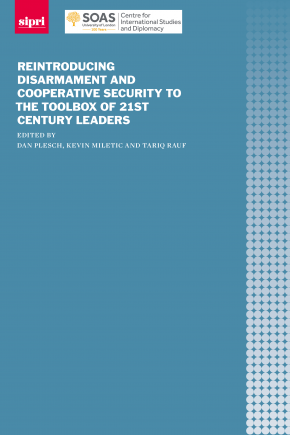Reintroducing Disarmament and Cooperative Security to the Toolbox of 21st Century Leaders
To the vast majority of people, ‘disarmament’ may sound like an ancient practice developed by cold war rivals to maintain the balance of power. The concept itself has fallen into abeyance as it has failed to remain high on the agenda of policymakers. Now considered a second-class issue, disarmament affairs rarely attract society’s attention. Senior officials usually prefer to put them on the back-burner and focus on issues deemed more pressing.
While the climate for any form of arms control and disarmament may appear bleak, keeping on doing business as usual will not improve the situation. It is rare to find a case where the militarization of international relations produces a more stable environment and more cooperative partners. Thus, it is essential to re-establish the linkages between security/stability and disarmament/arms control. It is especially important for current leaders to get reacquainted with arms control and disarmament. Leaders will be better equipped to face contemporary security challenges with such proven instruments in their toolbox.
With this in mind, the Centre for International Studies & Diplomacy at SOAS University of London and SIPRI have developed a joint publication on disarmament and cooperative security. The rationale for this volume is to oppose conventional thinking that equates national security with the modernization and build-up of military capabilities; and to rehabilitate disarmament and arms control mechanisms as a cornerstone of national security and international stability.
Introduction
PART I: REFLECTIONS ON THE CURRENT CONTEXT
1. Rethinking Strategic Stability
2. Erosion of the Disarmament Architecture and the Consequences for the International Security System
3. Asymmetric Disarmament Duties, Obligations and Efforts
PART II: OPPORTUNITIES FOR COOPERATIVE SECURITY AND DISARMAMENT
4. Cooperative Measures for International Cybersecurity
5. Reconciling Collective Defence and Nuclear Disarmament
6. Arms Control in Times of Crisis
7. Prospects for Cooperative Security and Disarmament in South East and North East Asia
8. Establishing a Cooperative Security System that Works: The Costa Rica Experience


